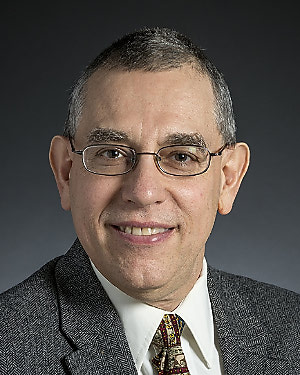Research Lab Results
-
Lee Martin Laboratory
In the Lee Martin Laboratory, we are testing the hypothesis that selective vulnerability--the phenomenon in which only certain groups of neurons degenerate in adult onset neurological disorders like amyotrophic lateral sclerosis and Alzheimer's disease--is dictated by brain regional connectivity, mitochondrial function and oxidative stress. We believe it is mediated by excitotoxic cell death resulting from abnormalities in excitatory glutamatergic signal transduction pathways, including glutamate transporters and glutamate receptors as well as their downstream intracellular signaling molecules. We are also investigating the contribution of neuronal/glial apoptosis and necrosis as cell death pathways in animal (including transgenic mice) models of acute and progressive neurodegeneration. We use a variety of anatomical and molecular neurobiological approaches, including neuronal tract-tracing techniques, immunocytochemistry, immunoblotting, antipeptide antibody production, transmission electron microscopy and DNA analysis to determine the precise regional and cellular vulnerabilities and the synaptic and molecular mechanisms that result in selective neuronal degeneration.
-
The Sun Laboratory
The nervous system has extremely complex RNA processing regulation. Dysfunction of RNA metabolism has emerged to play crucial roles in multiple neurological diseases. Mutations and pathologies of several RNA-binding proteins are found to be associated with neurodegeneration in both amyotrophic lateral sclerosis (ALS) and frontotemporal dementia (FTD). An alternative RNA-mediated toxicity arises from microsatellite repeat instability in the human genome. The expanded repeat-containing RNAs could potentially induce neuron toxicity by disrupting protein and RNA homeostasis through various mechanisms. The Sun Lab is interested in deciphering the RNA processing pathways altered by the ALS-causative mutants to uncover the mechanisms of toxicity and molecular basis of cell type-selective vulnerability. Another major focus of the group is to identify small molecule and genetic inhibitors of neuron toxic factors using various high-throughput screening platforms. Finally, we are also highly interested in developing novel CRISPR technique-based therapeutic strategies. We seek to translate the mechanistic findings at molecular level to therapeutic target development to advance treatment options against neurodegenerative diseases. -
Michael Kornberg Lab
Our laboratory conducts basic and translational research aimed at better understanding the pathogenesis of multiple sclerosis (MS) and the role of the immune system in CNS disease, particularly the processes that drive progressive disability such as neurodegeneration and remyelination failure. We currently have three parallel research programs: 1. Metabolism as a modulator of MS: We are studying how basic metabolic pathways regulate the immune system and how these pathways might be exploited to protect neurons and myelin-forming oligodendrocytes from injury. 2. Identifying pathways by which nitric oxide (NO) and other free radicals cause neuronal and axonal damage. Our lab is identifying specific signaling pathways initiated by NO and other free radicals that can be targeted by drugs to produce neuroprotection. 3. Modulating the innate immune system in MS: In collaboration with others at Johns Hopkins, we are studying ways to enhance the reparative functions of microglia while preventing maladaptive responses. This work has identified bryostatin-1 as a potential drug that may be re-purposed for this task. -
Tsapkini Language Neuromodulation Lab
We are exploring whether anodal tDCS when administered in combination with spelling, naming, or working memory therapy can improve language performance of PPA and MCI participants at least in the short term more than behavioral therapy alone. We are also investigating whether and how tDCS alters the neuropeptide signature in participants with PPA and MCI. We use proton magnetic resonance spectroscopy (1H-MRS) to monitor neuropeptide concentrations at the areas of stimulation. We hypothesize that tDCS will stabilize the decline of specific neuropeptides, but only in those areas of the brain where tDCS effectively results in more efficient gains in language compared to language therapy alone (with sham tDCS). Study results may help optimize future intervention in individuals with PPA and MCI by providing treatment alternatives in a neurodegenerative condition with no proven effective treatment. A better understanding of the therapeutic and neuromodulatory effects of tDCS in PPA and MCI will offer insight into ways of impeding neurodegeneration that may improve quality of life for individuals with PPA and MCI and may provide insights into the mechanisms of this treatment for augmenting therapy for stroke as well.



